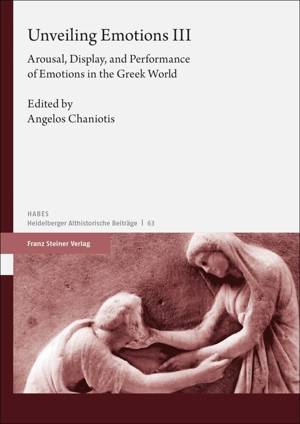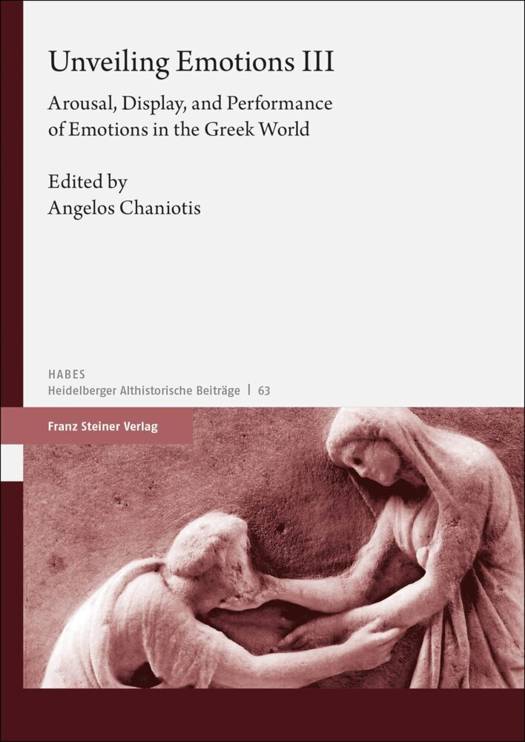
- Afhalen na 1 uur in een winkel met voorraad
- Gratis thuislevering in België vanaf € 30
- Ruim aanbod met 7 miljoen producten
- Afhalen na 1 uur in een winkel met voorraad
- Gratis thuislevering in België vanaf € 30
- Ruim aanbod met 7 miljoen producten
Zoeken
Unveiling Emotions. Vol. 3
Arousal, Display, and Performance of Emotions in the Greek World
€ 107,45
+ 214 punten
Omschrijving
The study of emotions has emerged in the last two decades as a major research subject in ancient studies. One of the primary aims of the study of emotions in the context of Greek and Roman Antiquity is to explore the means through which emotions are displayed and aroused, the contexts in which these media were applied, and the aims that they served. These are the themes addressed by the studies assembled in this volume, based on research conducted in association with a research project in Oxford. The subjects discussed by the authors include the use of disgust for the stigmatization and marginalization of individuals and groups; the use of emotions such as anger, pity, hope, fear, and affection for the construction of social hierarchies and political fictions; the various means used for the arousal of emotions in drama, historiography, oratory, and art; emotional aspects in the work of Isocrates, Polybios, and Philostratos; the role of emotions in rhetorical training, court dramas, petitions, and magic; and the display and arousal of emotions in ancient pantomime.
Specificaties
Betrokkenen
- Uitgeverij:
Inhoud
- Aantal bladzijden:
- 544
- Taal:
- Engels
- Reeks:
- Reeksnummer:
- nr. 63
Eigenschappen
- Productcode (EAN):
- 9783515129503
- Verschijningsdatum:
- 18/12/2020
- Uitvoering:
- Paperback
- Formaat:
- Trade paperback (VS)
- Afmetingen:
- 170 mm x 239 mm
- Gewicht:
- 919 g

Alleen bij Standaard Boekhandel
+ 214 punten op je klantenkaart van Standaard Boekhandel
Beoordelingen
We publiceren alleen reviews die voldoen aan de voorwaarden voor reviews. Bekijk onze voorwaarden voor reviews.






